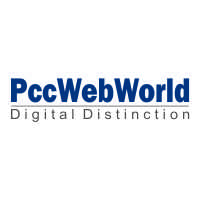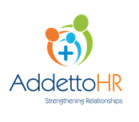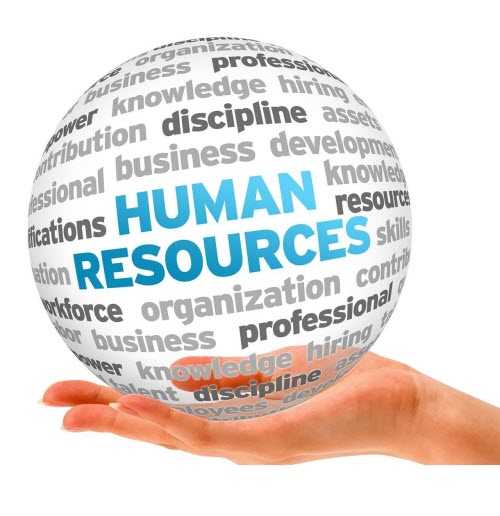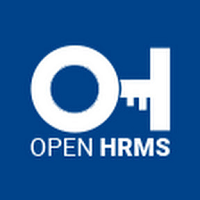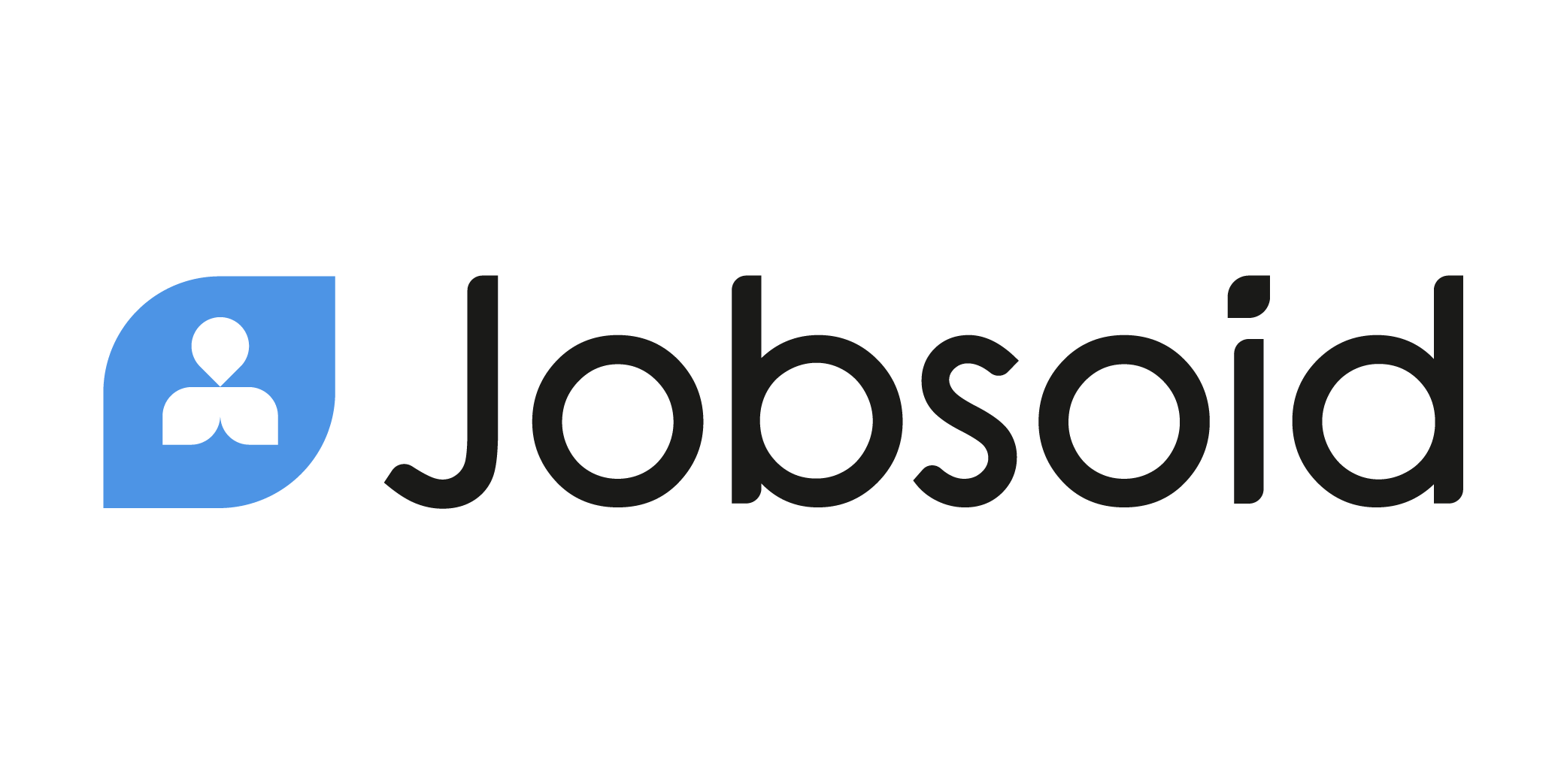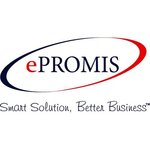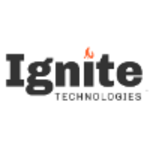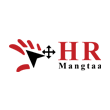Yes, current human resources software is meant to be available from a variety of devices and platforms. This means it can be used on PCs, laptops, tablets, and even smartphones, and it is compatible with a variety of operating systems including Windows, Mac OS, iOS, and Android. This flexibility enables HR managers to easily access and manage employee information and HR duties from any location, using any device or platform of their choice.
List of 20 Best Human Resources Software
People Trak - the all-encompassing HR and payroll solution designed specifically for small and midsize businesses. With its comprehensive HR data, advanced reporting features, and simplified workflows, People Trak is your go-to software for managing...Read More People Trak
Heartpace is aplatform that promotes collaborative and goal-oriented environments to drive companies towards success. Our software harnesses the power of OKRs and continuous performance management, empowering teams to unlock their full potential. Fos...Read More Heartpace
Flightman is an aviation software that raises the bar for airline operations and improves flight performance. Its exceptional reputation among industry leaders stems from its ability to streamline tasks such as flight planning and crew management. Th...Read More Flightman
PccWebWorlds HR Management Software solution for businesses of all scales - be it small, medium or large. Our software boasts of customizable features, fortified security measures, and automatic payroll generation with direct transfers to employeesâ...Read More PccWebWorld
CuckooTech - the leading attendance platform that has mastered the art of gamification. Say goodbye to compliance woes and hello to unparalleled employee engagement. Our satisfied clients swear by CuckooTech for surpassing their expectations and fulf...Read More CuckooTech
IBM Talent - a software solution that provides businesses with AI-powered analysis, streamlined recruitment procedures, and elevated staff satisfaction. Its robust capabilities enable organizations to effectively attract, nurture, and retain top tale...Read More IBM Talent
HR Neeti solution for large enterprises with over 1000 employees, facing challenges in managing a complex and dispersed workforce. Designed to cater to the needs of rapidly expanding businesses, HR Neeti provides a wide range of RPAs to fully automat...Read More HR Neeti
AddettoHRis a HR management solution from Intero Solutions. Utilize our cutting-edge automation features to optimize your HR procedures and boost productivity. Our versatile software caters to a diverse range of industries, including government, manu...Read More AddettoHR
HRMaster - a complete and seamless solution for all your human resource management needs. Specially designed for senior managers, HRMaster offers real-time updates and integrated features to streamline HR processes across your organization. Say goodb...Read More HRMaster
Arcoro is the modular HR software designed specifically for field-based teams. Our cloud-based platform streamlines hiring, compliance management, and employee development. With seamless integration and advanced analytics, Arcoro transforms your huma...Read More Arcoro
Open HRMS is tool that encourages employees to participate and contribute at all levels. It offers valuable insights into performance and makes attendance tracking a breeze. The software is equipped with advanced recruitment features that make findin...Read More Open HRMS
Jobsoid is a Online Applicant Tracking System (ATS) that optimizes the entire recruitment process for businesses. Its state-of-the-art features simplify steps from sourcing top candidates to securing the ideal hire. With a user-friendly interface and...Read More Jobsoid
Payfit solution for effortless payroll management. Trusted by over 16,000 businesses, this innovative software eliminates the hassle of tedious tasks and seamlessly integrates with HR systems. Stay updated in real-time and bid farewell to payroll hea...Read More Payfit
ePROMIS HCM solution for all your human capital management needs. Streamline your HR processes, enhance employee engagement, and optimize workforce planning with our comprehensive software. Seamlessly integrated, with real-time analytics and customiz...Read More ePROMIS HCM
Evalu-8 is a HR and H&S software that streamlines processes, centralizes data, and enhances productivity. With top-notch features like secure GDPR compliance and ISO 27001 certification, your data is safeguarded at all times. Our customizable solutio...Read More Evalu-8
UltiPro by Ultimate is a cloud-based HR solution designed to simplify and optimize your HR processes. With its powerful payroll engine, you can effectively manage employee information, benefits, and performance evaluations all in one convenient platf...Read More UltiPro
Secure HRMS - an all-inclusive cloud-based HR solution that offers varying levels of access for both employees and managers. This innovative software includes self-service capabilities, time tracking, and training modules, allowing for a streamlined...Read More Secure HRMS
HRMTHREAD, the premier web-based payroll software highly favored by over 5000 satisfied clients. With its advanced features, managing employee database and payroll has never been easier. Its user-friendly interface allows for smooth navigation and si...Read More HRMTHREAD
NuView is a HR software solution. Designed to streamline workforce management and increase employee engagement, NuView offers advanced features for payroll, benefits administration, and talent acquisition all in one seamless platform. Say goodbye to...Read More NuView
HR Mangtaa - the leading HCM software that provides a holistic solution for efficient human resource management and business advancement. Our integrated platform simplifies the entire employee lifecycle, from recruitment to retirement, allowing you t...Read More HR Mangtaa
Learn More About Human Resources Software
- What Is Human Resources Software?
- What Are The Recent Trends In Human Resources Software?
- Benefits Of Using Human Resources Software
- Important Factors To Consider While Purchasing Human Resources Software?
- What Are The Key Features To Look For In Human Resources Software?
- Why Do Businesses Need Human Resources Software?
- How Much Time Is Required To Implement Human Resources Software?
- What Is The Level Of Customization Available In Human Resources Software?
- Which Industries Can Benefit The Most From Human Resources Software?
- Conclusion
What Is Human Resources Software?
Human Resources Software is a digital technology that streamlines and automates numerous HR operations, allowing firms to better manage their workforces. This type of software has a wide range of capabilities, including employee data management, recruitment, performance evaluation, training and development, payroll, and benefits administration.
One of the key advantages of employing HR software is that it decreases HR teams' manual effort, allowing them to focus on strategic activities rather than monotonous administrative tasks. This leads to improved efficiency, accuracy, and time savings for the HR department. Most HR software also contains features like employee self-service portals, which allow employees to view their information, request time off, and change their personal information without relying on HR personnel.
This not only empowers employees, but also minimizes the workload of HR specialists. Another key advantage of HR software is its ability to centralize all HR data, making it readily available to HR teams and management. This information can then be utilized to develop analytical reports and analytics, which can aid in making educated decisions about workforce management and employee engagement.
Furthermore, HR software frequently connects with other company systems such as accounting and payroll software, resulting in a smooth flow of data across departments and removing the need for manual data entry, which reduces the likelihood of errors. Overall, investing in HR software may be transformative for firms by enhancing HR department efficiency, encouraging employee self-service, and offering useful information for better decision-making. With so many alternatives available, organizations of all sizes can discover HR software that meets their individual requirements and budget.
What Are The Recent Trends In Human Resources Software?
The discipline of Human Resources (HR) is continually evolving, and the introduction of technology has resulted in a considerable shift in how HR activities are managed. This has resulted in an increase in the use of HR software, which has become an indispensable tool for modern enterprises. To make an informed selection as a possible buyer of HR software, you must stay current on the latest trends in this field.
Let's explore, the latest developments in Human Resources software that you should be aware of:
1. Cloud-Based Solutions: One of the most significant trends in HR software is the transition to cloud-based solutions. This enables firms to access their HR data whenever, whenever, and from any device. Cloud-based HR software is also scalable, cost-effective, and includes automated upgrades, making it a popular choice for enterprises of all sizes.
2. Mobile Integration: As remote work and the gig economy gain traction, HR software is being created with mobile integration in mind. This allows employees to access HR-related information and services via mobile devices, making things easier and more efficient for both employees and HR professionals.
3. AI And Automation: Artificial intelligence (AI) and automation are altering the human resources environment by streamlining and automating activities such as recruitment, onboarding, and performance management. This saves time and costs while also ensuring accuracy and consistency in HR processes.
4. Employee Self-Service: Employee self-service is a common feature in HR software that allows employees to access and update their personal information, request time off, and examine pay stubs without going via the HR department. This empowers employees while reducing the strain on HR professionals.
5. Data And Analytics: Data analytics is now a vital part of HR software, allowing firms to make more informed decisions. This includes assessing personnel data, monitoring performance, detecting skill shortages, and forecasting future labor requirements.
6. Chatbots: Chatbots have shown to be a major changer in the human resources market. These AI-powered solutions may help with HR activities including answering basic employee questions, scheduling interviews, and recommending individualized learning and development opportunities.
7. Emphasis On Employee Engagement: HR software now includes elements to increase employee engagement. HR software assists firms in developing a positive and engaged workforce through programs like as employee recognition and rewards, pulse surveys, and feedback channels. As technology advances, HR software will grow and adapt to meet the changing needs of businesses and people.
Benefits Of Using Human Resources Software
Human Resources (HR) is a critical department in any firm, overseeing employee-related operations such as recruitment, payroll, performance review, and benefits administration. Historically, HR processes were primarily paper-based, making them time-consuming, laborious, and error-prone. However, the introduction of Human Resources Software (HR software) has made these processes more efficient and simplified. HR software is a set of digital technologies designed to help HR professionals manage and automate a variety of HR operations.
Let's explore, the benefits of utilizing HR software and how to make an informed selection when choosing one for your company.
1. Streamlined HR Operations: One of the key advantages of employing HR software is its ability to streamline HR operations. The software's automated workflows minimize the need for manual data entry, lowering the risk of errors and saving time. Instead of manually sorting through resumes, HR software may scan and filter them based on specified criteria, so speeding up and streamlining the recruitment process.
2. Cost-Effective: Investing in HR software can be an affordable choice for firms, particularly small and medium-sized businesses. The program reduces the need to hire extra HR workers, resulting in significant labor cost savings. Furthermore, streamlined operations can save time and resources, leading to higher productivity and long-term cost reductions.
3. Improved Data Management: HR software provides a consolidated platform for storing and managing employee data, including as personal information, employment history, performance evaluations, and training records. This not only makes data easier to access and analyze, but it also protects it by implementing tight access controls.
4. Improved Employee Engagement: HR software can also help to increase employee engagement by providing self-service choices. Employees can examine their benefits and pay stubs, request time off, and access their personal information via a self-service portal. This not only empowers them, but it also decreases the HR team's workload, allowing them to concentrate on strategic HR activities.
5. Accurate Reporting And Analytics: HR software has comprehensive reporting and analytics capabilities, allowing HR professionals to create customized reports based on employee data. These insights can help you detect patterns, pinpoint areas for improvement, and make data-driven decisions. It also eliminates the need for manual data compilation, saving time and lowering the risk of inaccuracy.
6. Compliance Management: Adherence to labor laws and regulations is critical for any firm. HR software automates compliance-related operations like tax filing, benefits administration, and time-off tracking, lowering the risk of errors and maintaining legal compliance.
Important Factors To Consider While Purchasing Human Resources Software?
When it comes to selecting human resources software, there are a few crucial elements to consider to ensure that you're making the greatest option for your company and employees.
Here are some crucial considerations to consider as you traverse the process of selecting the best HR software for your company:
1. Features And Functionality: The first item to evaluate is what specific features and functionality your firm requires from HR software. Identify your pain points and select the features that will best address them. Common features to look for include payroll management, performance assessments, time and attendance tracking, and staff onboarding.
2. Scalability: As your company grows, you need ensure that your HR software can keep up. Look for software that can scale and adapt to your changing requirements. This will spare you the difficulty and expense of switching to a new system in the future.
3. User-Friendly Interface: Because your HR team and employees will use the software on a daily basis, it is critical to select a system that is simple to use and navigate. A complex and confusing interface can cause frustration and inefficiency.
4. Integration With Other Systems: Your HR software should be able to work smoothly with your existing systems, such as accounting software and application tracking systems, to speed operations and eliminate redundant data entry.
5. Customization Options: When it comes to HR management, each firm has its own set of requirements and practices. Look for software with customization possibilities to suit the system to your individual needs.
6. Mobile Accessibility: With the advent of remote work and employees on the move, having mobile-friendly HR software is essential. This enables quick access to HR information and operations from anywhere, at any time.
7. Data Security: Because HR software holds sensitive employee information, it is critical that the system has strong data security measures in place, such as encryption and regular data backups, to prevent any breaches.
8. Customer Support: Technical issues or questions may develop, just as they can with any product. Look for a vendor that provides dependable and responsive customer service to help you in any situation.
9. Pricing: HR software prices can vary substantially, so it is critical to compare options and select one that is within your budget. Consider the software's worth and potential for long-term cost reductions.
10. User Reviews And References: Before making a final selection, check other users' reviews and request references from the provider. This can provide useful information on the software's performance and dependability. Overall, taking the time to carefully consider these variables can assist you in selecting the best human resources software for your organization's specific requirements.
What Are The Key Features To Look For In Human Resources Software?
When looking to buy Human Resources (HR) software, it is critical to evaluate the main elements that will help streamline and optimize your HR activities.
Here are some key aspects to look for in HR software to make an informed purchasing decision:
1. Applicant Tracking: Look for software that allows you to easily and efficiently track job applicants throughout the hiring process. This may contain capabilities like resume parsing, candidate screening, and interview scheduling.
2. Employee Data Management: One of the most important features of HR software is the capacity to store and manage employee information such as personal information, career history, performance evaluations, and more. Make sure the software can safely store and retrieve this information.
3. Onboarding And Offboarding: A decent HR software should include tools for employee onboarding, training, and offboarding. This may entail automating paperwork, providing training materials, and overseeing exit interviews.
4. Performance Management: Look for software that includes capabilities for tracking and evaluating staff performance. This can include defining goals, conducting performance reviews, and tracking progress over time.
5. Time And Attendance Tracking: Keeping track of staff attendance, breaks, and requests for time off can be time-consuming. Consider software that supports clock-ins, time-off requests, and automated timesheet calculations.
6. Benefits Administration: HR software can assist in administering employee benefits such as healthcare, insurance, and retirement plans. Look for features that facilitate enrollment, payments, and record-keeping.
7. Compliance And Reporting: Adherence to labor laws and regulations is critical for any organization. Look for software that can provide compliance reports and assist with tracking and managing staff hours, overtime, and leave.
8. Self-Service Options: Giving employees self-service access to their HR records can benefit both firms and employees. Look for software that has self-service portals for checking pay stubs, benefits, and requesting time off.
9. Customization And Integration: Each organization has its own HR processes and requirements. Consider software that allows for customization and integration with other corporate systems, such as payroll or accounting software.
Why Do Businesses Need Human Resources Software?
In today's competitive business environment, having an efficient and effective human resources (HR) department is critical to the success of any firm. HR is responsible for employee management and support, including recruitment, training, performance assessments, and payroll. However, as the demands and complexities of today's workplace grow, manual HR operations can become stressful and time-consuming.
This is where HR software comes in. One of the most important reasons firms need HR software is to streamline their HR procedures, making them faster and more efficient. HR software saves time and effort by automating operations like application tracking, onboarding, time and attendance tracking, and performance assessments, allowing employees to focus on more critical activities.
Furthermore, human resources software enables organizations to comply with ever-changing labor rules and regulations. The software may manage and save critical employee data, including as personal information, contracts, and certifications, ensuring that all required documents are up to date and in accordance with legal standards. Another key advantage of HR software is its capacity to deliver real-time data and analytics.
This gives firms a thorough view of their staff, including employee turnover rates, training requirements, and performance trends. With this information, businesses can make data-driven decisions to optimize their HR strategy and increase overall employee happiness and retention. Furthermore, HR software consolidates all employee data in a single safe location, making it easily accessible to authorized workers.
This not only avoids the possibility of losing vital documents, but it also saves time and effort in accessing information when necessary. Finally, HR software is scalable for enterprises of all sizes, from startups to enterprise-level organizations. As businesses expand and their HR requirements evolve, the software can be adjusted and upgraded to fit those demands, making it a worthwhile and long-term investment.
Overall, human resources software streamlines operations, assures compliance, gives useful insights, increases employee satisfaction, and allows for scalability, making it a crucial tool for firms seeking to succeed in today's fast-paced and competitive market.
How Much Time Is Required To Implement Human Resources Software?
The time necessary to implement human resource software varies based on the program and your organization's size and complexity. On average, successful implementation can take anything from a few weeks to several months. First and foremost, the installation timetable will be determined by your organization's willingness to accept and employ the new software.
This includes having a thorough understanding of your HR operations and ensuring that all relevant data is easily accessible and organized. Next, the precise features and modules you select to integrate can affect the timeline. For example, if you choose a comprehensive HR suite, it may take longer to properly integrate all modules than a more basic software with fewer functions.
Furthermore, the software vendor's support and training resources can significantly impact installation time. It is critical to collaborate closely with your vendor to understand their onboarding and training processes, as well as to allow enough time for your team to become familiar with the software. In some circumstances, data migration from your previous HR system can extend the installation timetable.
It is critical to properly evaluate the data migration procedure and any potential issues that may develop. Finally, good planning, communication, and cooperation between your business and the software vendor are essential for the successful and efficient adoption of human resources software. You can ensure a smooth and timely implementation process by assigning adequate time and resources and adhering strictly to the vendor's requirements.
What Is The Level Of Customization Available In Human Resources Software?
One of the most important elements to consider when selecting human resources software is the level of customization available. This refers to the software's capacity to be customized to match the unique needs and processes of your firm. Customization is critical to ensuring that the software interacts easily with your existing HR system and meets your specific business needs. At its foundation, human resources software enables you to streamline your HR activities, such as storing employee data, tracking attendance, and conducting performance assessments. However, each organization has a distinct set of policies, procedures, and workflows. Here's where customisation comes into play. The level of customization provided varies widely among HR software suppliers. Some providers may take a one-size-fits-all approach, while others allow for a high level of flexibility to meet your individual requirements. It is critical to establish how much customisation your firm requires and then select a software vendor accordingly.
Some important aspects to consider when assessing the level of customization possible in human resources software include:
1. The Capacity To Add Or Alter Fields: Look for software that allows you to add or modify fields to meet your organization's data collection requirements. This allows you to capture critical data and KPIs that are unique to your organization.
2. User Interface Customization: A user-friendly interface is critical to ensure that your HR team uses the program efficiently. Look for software that allows you to tailor the layout and design of the interface to your organization's specific demands.
3. Workflow Automation: Many HR processes require several phases and approvals. Customizable software enables you to map and automate these procedures, enhancing efficiency and lowering the chance of errors.
4. Integration Wth Third-Party Systems: Can the program work with other tools or systems you are already using? This is critical for configuring the program to integrate seamlessly into your existing HR ecosystem.
5. Reporting And Analytics: Customizable reporting and analytics options enable you to create and evaluate data in the manner that best matches your organization's requirements. Look for software with versatile reporting options to acquire important insights into your HR processes.
Which Industries Can Benefit The Most From Human Resources Software?
Human resources software is a useful tool for businesses of all sizes and industries because it enables them to efficiently manage their workers, streamline procedures, and comply with numerous requirements. Certain industries, however, can benefit more from HR software due to their unique requirements and constraints.
Let's explore, which industries can benefit most from human resources software.
1. Healthcare Industry: The healthcare industry has strict regulatory requirements, complex scheduling needs, and a huge workforce. HR software can assist healthcare firms in maintaining correct employee data, scheduling, and ensuring compliance with regulations such as HIPAA and ACA.
2. Retail Industry: Because of high turnover rates, handling employee data and payroll can be time-consuming. Retail firms can use HR software to streamline the onboarding process, manage employee performance, and handle payroll and benefits administration efficiently.
3. Hospitality Industry: The hospitality industry relies significantly on shift scheduling to manage employee efficiency. HR software may help you create, maintain, and alter employee schedules, keep track of time and attendance, and evaluate performance to ensure peak productivity.
4. Manufacturing Industry: Manufacturing organizations can have a large and diversified workforce, making it difficult to handle personnel data, training, and compliance. HR software may help you centralize all personnel information, track training and development, and ensure compliance with labor laws and safety standards.
5. Education Industry: From managing teachers and staff to processing student information and ensuring compliance with education laws, HR software is critical in the education sector. It can also help to streamline recruitment processes, track employee certifications, and conduct performance evaluations.
6. Professional Services Industry: Law firms, consulting firms, and other professional service providers have distinct HR requirements. HR software can assist them handle client billing, track billable hours, and generate reliable reporting on staff performance and profitability.
Conclusion
After conducting extensive study and analysis, it is evident that investing in human resources software may help businesses of all sizes. These systems' features and functionalities can help streamline HR operations, increase efficiency, and boost overall productivity. One of the most significant benefits of employing HR software is the automation of processes such as payroll management, personnel records, and recruitment.
This not only saves time and reduces human error, but also allows HR experts to focus on more strategic objectives. Furthermore, with the rise of remote work and digital collaboration, having a centralized HR software can significantly improve communication and collaboration among team members. This promotes a healthy and efficient workplace culture, resulting in improved employee satisfaction and retention rates.
Furthermore, with a rising emphasis on data-driven decision making, HR software offers useful insights and analytics to help businesses make informed decisions. This can include anything from projecting employee turnover rates to finding areas for improvement within the firm. It is crucial to understand that not all HR software systems are made equal. As a result, before picking software, you must thoroughly consider your company's individual objectives and requirements. When making a decision, take into account budget, scalability, and customer support.
To summarize, by using the appropriate human resources software, organizations may improve their HR operations, increase productivity, and create a more positive and efficient work environment for their employees. With its numerous advantages, HR software is an excellent investment for any corporation wanting to stay ahead of the competition in today's business scene.
Human Resources Software FAQ's
Can Human Resources Software Be Accessed Across Multiple Devices And Platforms?
Is Human Resources Software Future-Proof And Adaptable To Emerging Technologies Like AI, Blockchain Or IoT?
Human Resources software is always growing to keep pace with technological improvements. Most modern HR software is future-proof and adaptable to new technologies such as AI, blockchain, and IoT.
These software solutions are intended to embrace new technologies and features as they become available, keeping them relevant and successful in the long run. This makes it an excellent investment for businesses trying to improve their HR procedures and stay competitive in an ever-changing business landscape.
Is There A Free Trial Offered To Assess Human Resources Software Before Committing?
Yes, many human resources software providers provide free trial periods to prospective clients. This is an excellent opportunity to try out the program and determine whether it fulfills your organization's needs before making a purchase. Using a free trial, you can decide whether the program is user-friendly, offers the functionality you need, and is within your budget. It is critical to take full use of the trial time in order to make an informed decision.
Does Human Resources Software Offer Data Security Features And Meet Regulatory Compliance Standards?
Yes, most Human Resources Software suppliers include comprehensive data security safeguards to protect sensitive employee information. This includes encryption, access limits, and regular backups to protect against data breaches. Furthermore, HR software is built to meet legal compliance standards such as GDPR and HIPAA, which ensure that all employee data is managed in accordance with applicable laws and regulations. Businesses and their employees can rest well knowing this.
Can Human Resources Software Integrate Seamlessly With Existing Tools And Platforms?
Yes, most current HR software is designed to work smoothly with existing tools and platforms. This enables a more efficient and streamlined process because data can be quickly moved between multiple platforms. Furthermore, HR software frequently has configurable integrations, allowing businesses to adjust the program to their specific requirements. This integration option enables HR teams to manage employee data, payroll, benefits, and other critical functions all in one spot.




